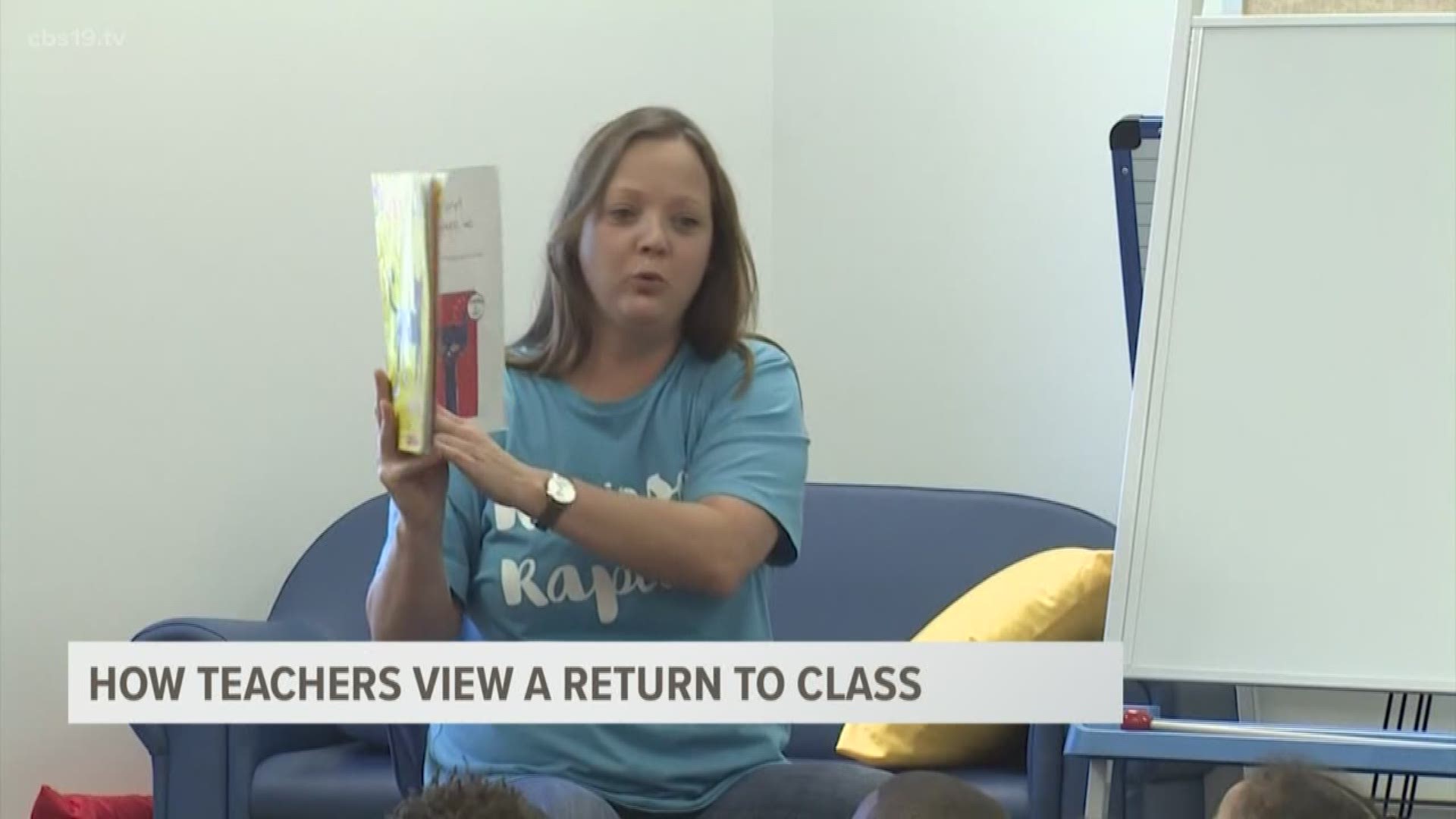TYLER, Texas — Governor Greg Abbott is expected to announce next week that students will return to class, as well as details about how it will work. However, one of the most important parts of the equation feels left out: Teachers.
Roylena Stewart-Sparrow, President of the Tyler Education Association, said teachers have not been invited into any discussions about what school might look like when the 2020-21 year begins in August. She urged leaders of the Tyler Independent School District to include them when making final decisions about policies for the upcoming school year.
“As long as we have all stakeholders at the table, and make sure we have the safety procedures and protocols in place, we can overcome and keep kids successfully academically successful and overcome COVID,” Stewart-Sparrow said.
During a conference call with state legislators on Thursday, Texas Education Agency Commissioner Mike Morath said that schools will hold in-person classes this fall. A spokesperson said more details would be announced during a news conference sometime next week.
“As long as we have safety protocols and procedures in place, I am 100 percent supportive of the TEA recommendation,” Stewart-Sparrow said.
However, that is the condition that worries her the most about the idea of having students on campus once again.
“My biggest concern is making sure that we are doing safety protocols and we have those in place,” Stewart-Sparrow said, “as far as, like, screening people every day before they enter the building; making sure, if they do have symptoms, we’re sending them home; making sure everyone has adequate PPE recommendations and supplies available for our students and staff.”
Stewart-Sparrow said she thought distance learning went well after COVID-19 forced the end of in-person classes in March. She believes it helped teachers connect more with the parents of their students.
“Because a parent was able to contact you," Stewart-Sparrow explained, "to say, ‘hey, I’m not understanding how to do this, can you assist me with that?’ For those who were very involved and hands-on with their student’s learning.”
Many school districts have planned for a hybrid model in the fall, having some classes on campus and some online. Stewart-Sparrow said some families would struggle with more online schooling because they did not have internet access at home.
She mentioned that SuddenLink gave families three months free if they could not afford it, but that would expire by fall, and the cost of an internet bill is something some families cannot afford.
For others, however, an online option will be a necessity. Some students have family members who are at higher risk of illness from COVID-19, but that goes for some teachers, too.
“Everything goes back to safety," Stewart-Sparrow explained. "If a student has underlying health issues, as well as an educator has underlying health issues, I would recommend that we have something in place so that the student’s health and the educator’s health is in place. Because, at the end of the day, we’re supposed to be effective in educating students. If we go to school and put ourselves or students in harm’s way, we can’t be effective.”
Stewart-Sparrow said many teachers are anxious about the fall because they have heard so many rumors and so little from the state about what school will look like. They are ready to renew the relationships with their students and know the impact a teacher can have on a child’s life. But she wants to make sure they are part of the plan long before the bell rings.
“It’s not about the timing," she added. "It has to do with being effective and communication, and being transparent.”

